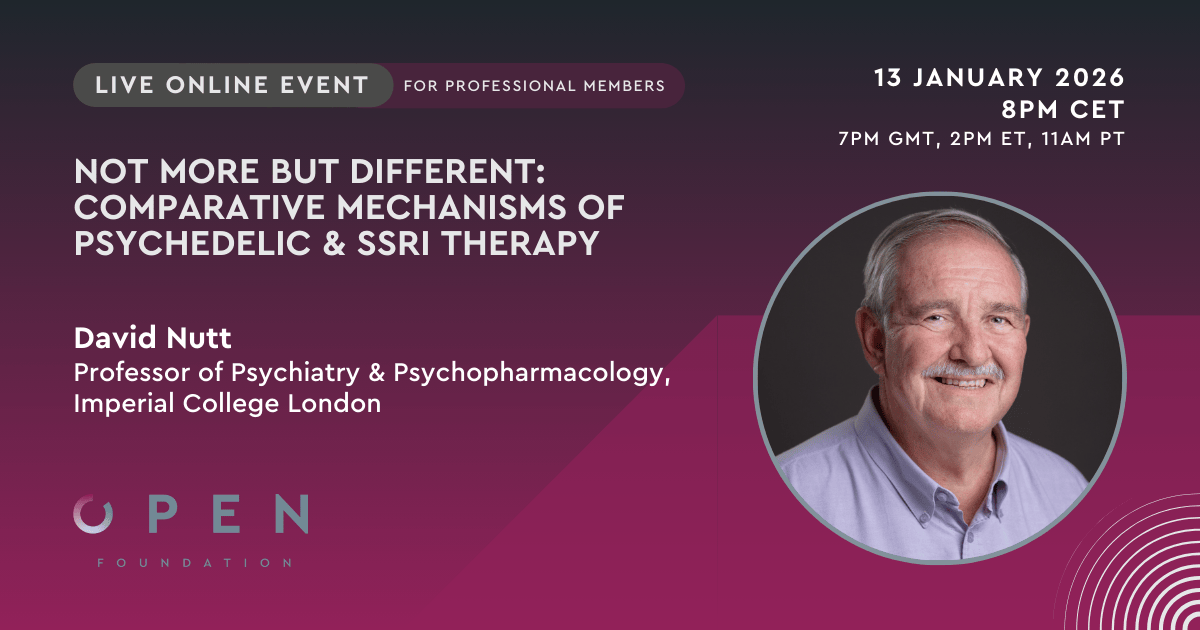Abstract
Rationale: Posttraumatic stress disorder (PTSD) is a chronic condition that has wide-ranging negative effects on an individual’s health and interpersonal relationships. Treatments with long-term benefits are needed to promote the safety and well-being of those suffering from PTSD.
Objectives: To examine long-term change in PTSD symptoms and additional benefits/harms after 3,4-methylenedioxymethamphetamine (MDMA)-assisted psychotherapy for treatment of PTSD.
Methods: Participants received two to three active doses of MDMA (75-125 mg) during blinded or open-label psychotherapy sessions with additional non-drug therapy sessions. PTSD symptoms were assessed using the Clinician-Administered PTSD Scale for DSM IV (CAPS-IV) at baseline, 1 to 2 months after the last active MDMA session (treatment exit), and at least 12 months post final MDMA session (LTFU). A mixed-effect repeated-measures (MMRM) analysis assessed changes in CAPS-IV total severity scores. The number of participants who met PTSD diagnostic criteria was summarized at each time point. Participants completed a long-term follow-up questionnaire.
Results: There was a significant reduction in CAPS-IV total severity scores from baseline to treatment exit (LS mean (SE) = – 44.8 (2.82), p < .0001), with a Cohen’s d effect size of 1.58 (95% CI = 1.24, 1.91). CAPS-IV scores continued to decrease from treatment exit to LTFU (LS mean (SE) = – 5.2 (2.29), p < .05), with a Cohen’s d effect size of 0.23 (95% CI = 0.04, 0.43). The number of participants who no longer met PTSD criteria increased from treatment exit (56.0%) to LTFU (67.0%). The majority of participants reported benefits, including improved relationships and well-being, and a minority reported harms from study participation.
Conclusions: PTSD symptoms were reduced 1 to 2 months after MDMA-assisted psychotherapy, and symptom improvement continued at least 12 months post-treatment. Phase 3 trials are investigating this novel treatment approach in a larger sample of participants with chronic PTSD.
Objectives: To examine long-term change in PTSD symptoms and additional benefits/harms after 3,4-methylenedioxymethamphetamine (MDMA)-assisted psychotherapy for treatment of PTSD.
Methods: Participants received two to three active doses of MDMA (75-125 mg) during blinded or open-label psychotherapy sessions with additional non-drug therapy sessions. PTSD symptoms were assessed using the Clinician-Administered PTSD Scale for DSM IV (CAPS-IV) at baseline, 1 to 2 months after the last active MDMA session (treatment exit), and at least 12 months post final MDMA session (LTFU). A mixed-effect repeated-measures (MMRM) analysis assessed changes in CAPS-IV total severity scores. The number of participants who met PTSD diagnostic criteria was summarized at each time point. Participants completed a long-term follow-up questionnaire.
Results: There was a significant reduction in CAPS-IV total severity scores from baseline to treatment exit (LS mean (SE) = – 44.8 (2.82), p < .0001), with a Cohen’s d effect size of 1.58 (95% CI = 1.24, 1.91). CAPS-IV scores continued to decrease from treatment exit to LTFU (LS mean (SE) = – 5.2 (2.29), p < .05), with a Cohen’s d effect size of 0.23 (95% CI = 0.04, 0.43). The number of participants who no longer met PTSD criteria increased from treatment exit (56.0%) to LTFU (67.0%). The majority of participants reported benefits, including improved relationships and well-being, and a minority reported harms from study participation.
Conclusions: PTSD symptoms were reduced 1 to 2 months after MDMA-assisted psychotherapy, and symptom improvement continued at least 12 months post-treatment. Phase 3 trials are investigating this novel treatment approach in a larger sample of participants with chronic PTSD.
Jerome, L., Feduccia, A. A., Wang, J. B., Hamilton, S., Yazar-Klosinski, B., Emerson, A., … & Doblin, R. (2020). Long-term follow-up outcomes of MDMA-assisted psychotherapy for treatment of PTSD: a longitudinal pooled analysis of six phase 2 trials. Psychopharmacology., https://doi.org/10.1007/s00213-020-05548-2
Link to full text









